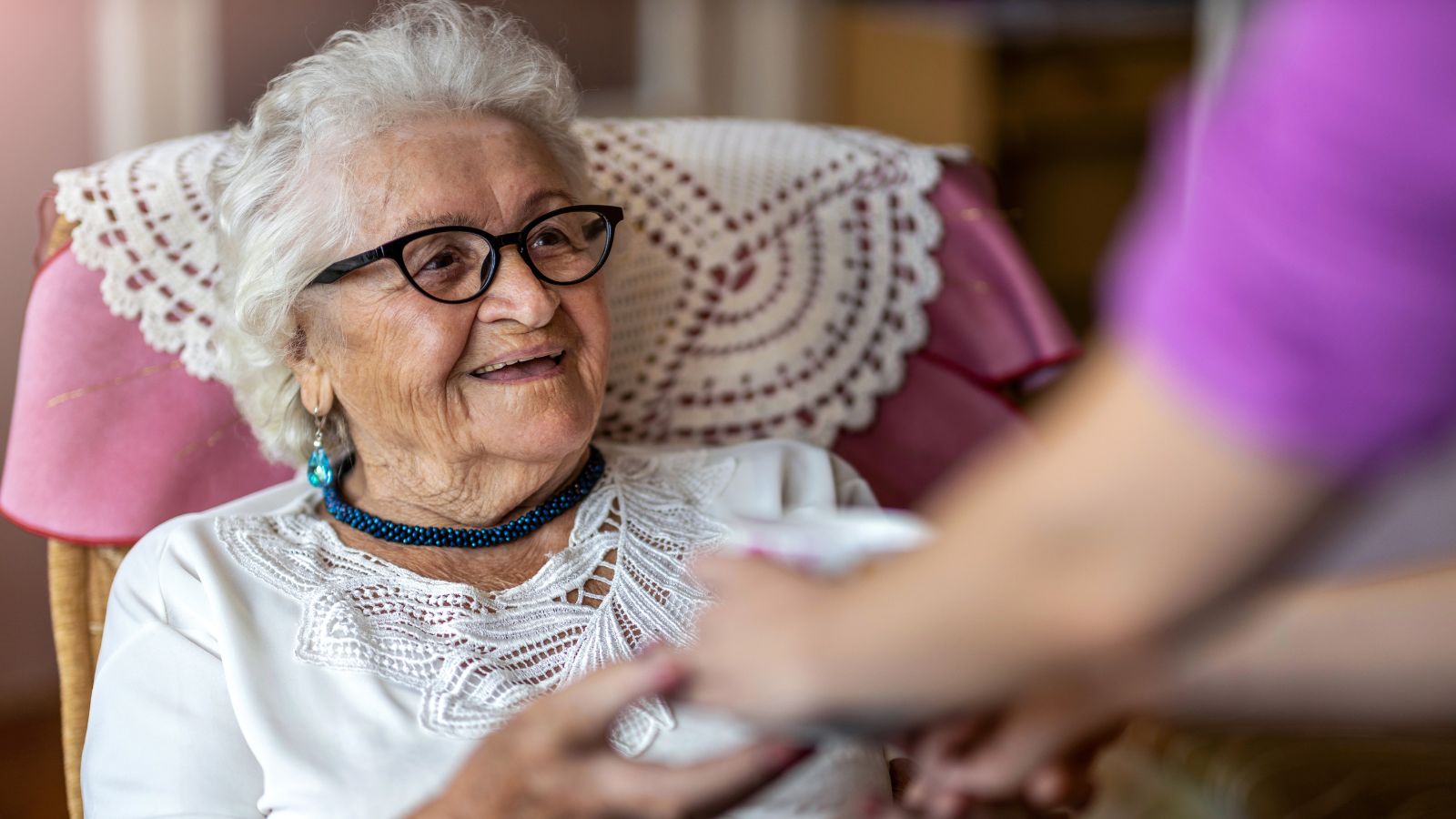Dealing with ageing parents isn’t fun for anyone, them, or you, and it can be difficult to see a decline in our parent's health. However, if you start to notice that your parents are struggling to maintain daily living alone, whether it’s a garden that’s becoming overgrown, a decrease in their ability to cook, and clean for themselves, or attend to their personal hygiene, these can all be signals that it’s time to consider getting some aged care for an ageing parent. This can feel like an incredibly daunting subject to broach with our parents as we are so used to them being the ones to lead on important issues, however, it is usually a necessary step that can help to improve the lives of our parents, while putting your mind at rest too. Here are 18 ways to help aging parents adapt to aged care support.
Sensitive Communication

Communication is important in all relationships, including those between parents and their adult children. You are going to need to open up the channels of communication with your mother, and/or father about the possibility of them getting some help around the home, however, this should be done in a tactful, and sensitive manner.
You could say something like, “Would you like me to get the local gardener to call once a month to mow the lawns, and tidy up the garden? It might give you more time for your crossword”.
Enlist the Help of Family

It can feel daunting, and invasive for elderly people who have lived a life full of independence to suddenly have to rely on strangers to come into their home to help them with chores, so we suggest that it’s a good idea to ask some family members if they can help out a few hours per week.
Obviously, with the permission of your parents, getting your siblings, or cousins to call in and maybe cook a meal, do the laundry, etc, can help your parents feel supported, instead of being “cared for”. This can also open the door to considering professional home help services down the line.
More Sensitive Communication

We are listing this once twice, as we can’t stress enough how much having open, and sensitive conversations with your ageing parents is. Whether they are recovering from a recent health event like surgery, a fall that has led to their increased need for support, or their memory is declining, be prepared to have the same conversations over, and over.
Your parents will likely be feeling vulnerable and may need to be reassured many times, this is natural, and it can also be a symptom of dementia, and although it can be testing to have to repeat yourself, try to be patient, and take regular breaks.
Listen

We’ve talked a lot about talking so far, so it’s only right that we prioritize listening too, as this is the important one. As the adult children of your parents, you will likely already be quite tuned into their needs, but don’t take for granted that you know what they want and need.
Make time to ask Mom, and/or Dad what they would like to happen, what would make them happy, and what they need from you, and then just listen. Be prepared for their wants, and needs not to match up with reality, but try to reach a level of compromise that they feel good about.
Decision Making

Even if it appears your parents aren't capable of making the best decision for themselves, you must still ensure that they’re as involved as possible in decision-making processes, as ultimately this is their life.
Although it can be tempting to think that you know best, this doesn’t override your parents preferred request, in most cases.
Dignity and Respect
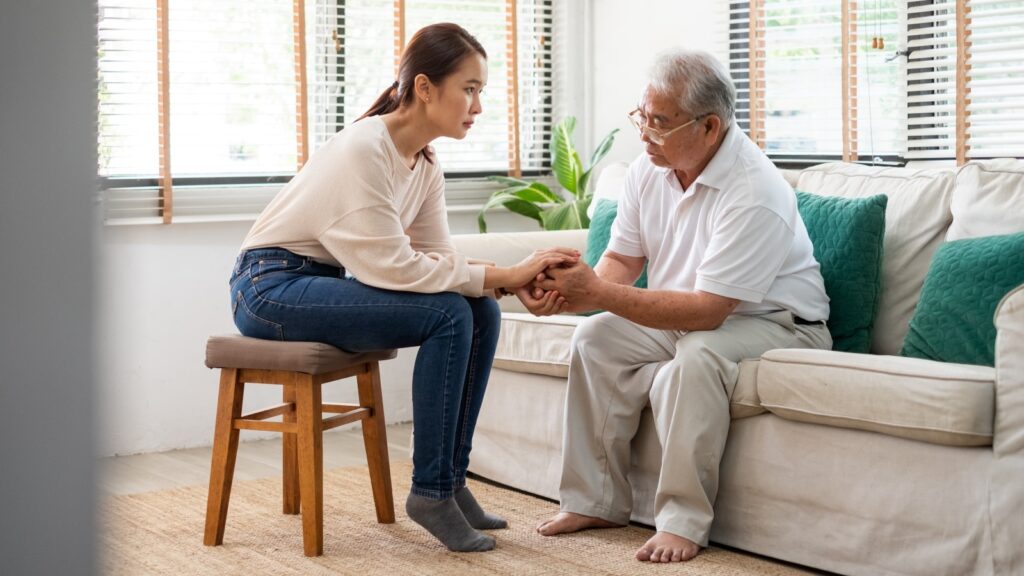
It’s important that you make every effort to maintain Mom, and Dad's dignity and respect throughout, what can be a very challenging period of transition from independence to home care support, supported living, or nursing home care.
For example, make sure that care is taken to treat their home, and possessions with care, and respect, and that they have a say in things like, their daily clothes choice, etc.
Positive Distractions

It’s easy for elderly people to feel down, or depressed about the fact that they can no longer look after themselves the way they used to. That’s why it’s important to make an effort to use positive distractions that you know will lift their mood, cheer them up, and take their mind off things.
Whether bringing their favorite cake for tea, doing a crossword together, or knitting, whatever your parents enjoy, make time for it.
Diet and Nutrition

Diet and nutrition are an integral part of our physical, and mental health, and with declining independence, elderly individuals can often end up neglecting their diet. It’s important to make sure that your aging parents are eating a well-balanced diet, this will help to keep them strong and healthy.
This may mean cooking some nutritious meals for them yourself, asking relatives to drop off some tasty casseroles, or liaising with home care staff to ensure that the food they are receiving is of good quality and that they actually like it too!
Medical Appointments
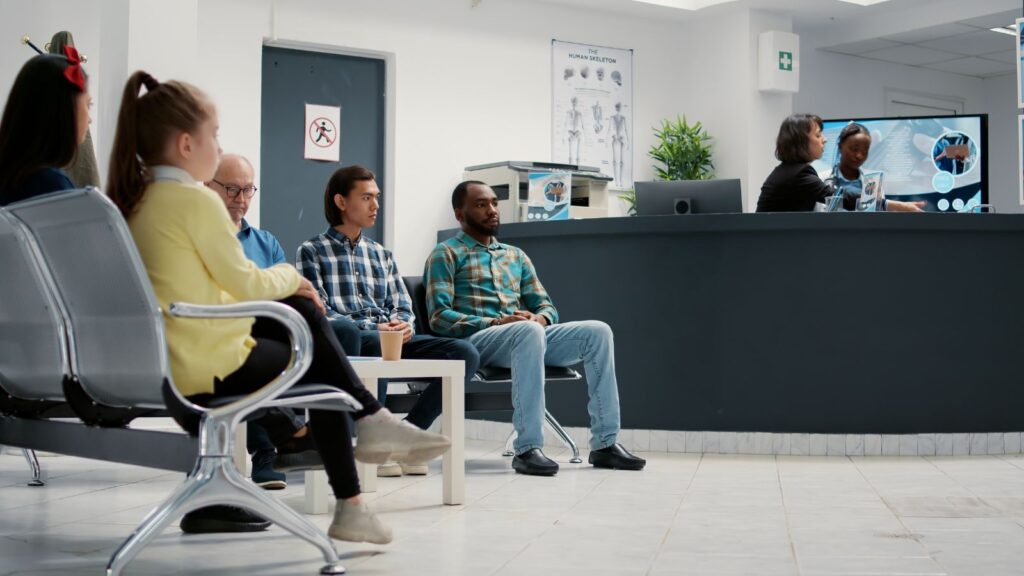
Supporting your aging parents to attend their medical appointments is of paramount importance, especially if you have noticed a decline in their health. It can be a good idea to ask Mom, and/or Dad if they would like you to sit in on the appointment with them.
Ensuring that your ageing parents are getting the right medical treatment, can solve a lot of issues, you may discover that they are suffering from some condition that neither of you was aware of which can be treated with the right medications.
Medications

As humans age, our memory naturally degrades, and it's common for the elderly to be more forgetful.
Make sure you are aware of any medications your parent has been prescribed by their doctor, and help to remind them when they need to take them. This can help to aid their health, and recovery, and slow down the progression of any illness.
Home Care Services

After you have followed some of the steps above, and you have communicated with your parents, listened to them, and been sensitive to their wants and needs, you still might see a rapid decline in their health or independent living skills.
This can mean that enlisting professional home-care services might be the next right step. While working in collaboration with Mom, and Dad as much as possible, arranging care nurses who call daily to help with personal hygiene, chores, and meal preparation might be required.
Supported Living Schemes

Another option for ageing parents experiencing decreased independent living skills is supported living accommodation. These are apartment-style buildings where each elderly resident still has their privacy and own front door, however, there are nurses on site 24/7 that help with the administration of medications, and all meals are provided.
This is a great option for parents who are still quite able to live somewhat independently but with added support. Furthermore, supported living helps to promote social engagement as many residents can meet in the communal areas for dinner, card games, etc if they wish.
Hospital Care

If your elderly parent's health has deteriorated due to illness, a fall, or dementia, to the point where they need hospital care, often, doctors will request that intensive home support, or a nursing home place is secured before they will discharge them.
At this stage, you will need to try your best and work with Mom, and/or Dad’s wishes as much as possible, but depending on their care needs, a nursing home might be the best option. But this is a very personal, and individual decision.
Dignity of Risk

If your ageing parent is still compos mentis, meaning they can communicate effectively, and coherently, even if you think that they are unsafe to return home to their own home, the medical concept of “dignity of risk” means that people are still entitled to take risks, if they choose.
This can be incredibly difficult to accept as you may be concerned that your parent might fall, and injure themselves. However, the best advice is to try and work with your parent's wishes, not against them.
Love and Support

Supporting an aging parent is not easy, and you are likely to need love and support almost as much as them. Make sure that you have a caring support system for yourself that allows you to take regular breaks between caring for your parents.
Make sure that you are giving Mom, and Dad lots of emotional support, and kindness during this time, as they will no doubt need to feel your love, and care, more than ever. Of course, depending on the relationship that you have with your parents, what this looks like will vary, and that is ok too. You are doing your best.
Hobbies and Interests
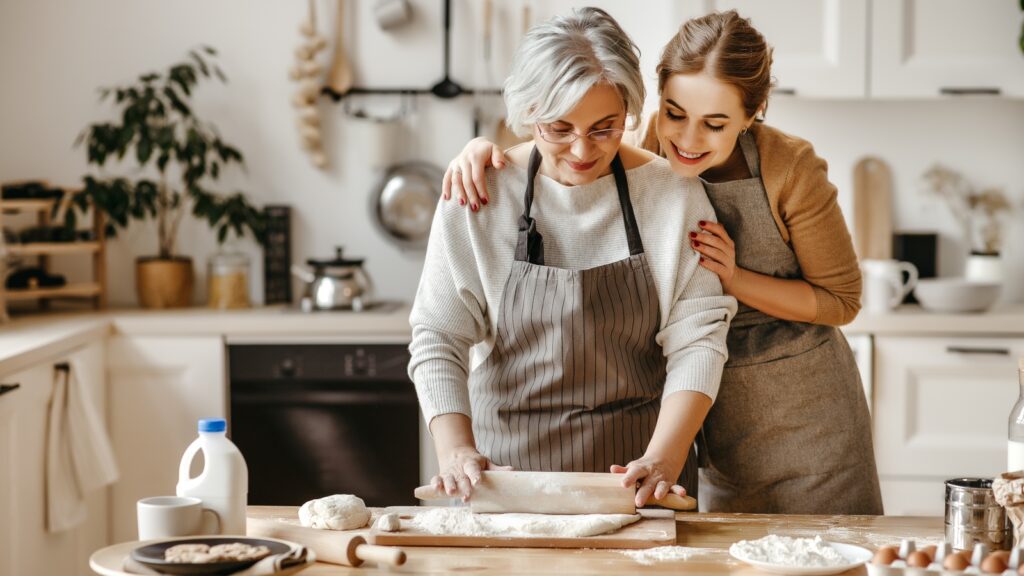
Amidst a period of change or ill health, it can be helpful to remind Mom, and Dad of their favorite hobbies, and interests. For example, if your father always loved bird watching, why not make time to bird watch together in the garden, bake a cake with your Mom if she loved to cook, or read a book out loud with your parent, if they enjoy reading?
This can help to generate some positive emotions for you all.
Music

The power of music to lift our spirits, and help us feel better is undeniable. Make an effort to play your parent's favorite songs, and if you can have a sing-song together, even better!
Research shows that music can be beneficial for elderly people suffering from dementia, and it can contribute to their overall well-being.
Movement
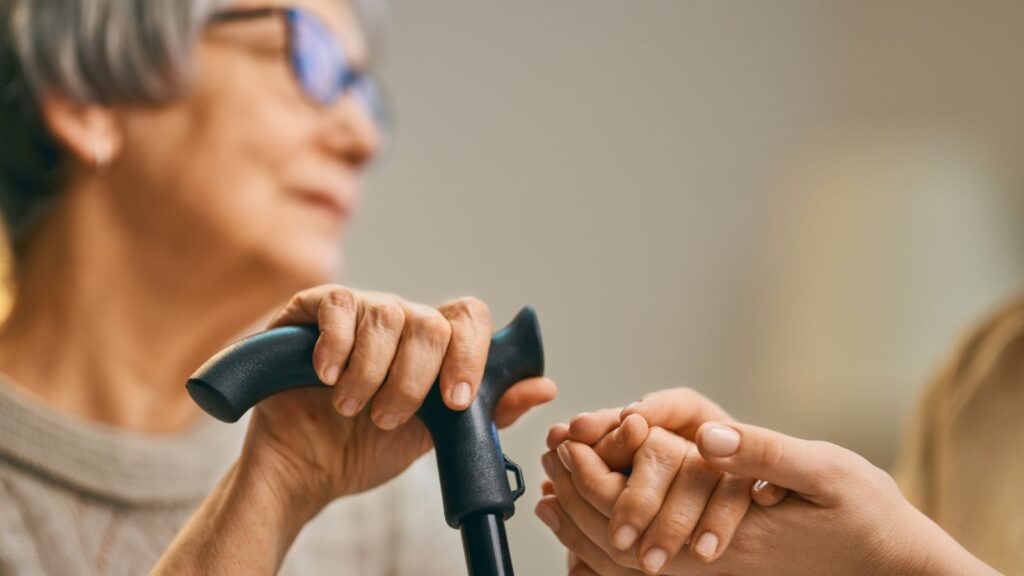
As we age, we slow down and tend to move less. Exercise and movement are essential for maintaining overall health, and longevity, of course, we are not expecting to get our ageing parents out jogging, but encouraging them to engage in some gentle movement, whether it’s walking around the garden, or dancing can help to improve their wellbeing and mood.
Furthermore, dancing around the living room together might do both of you good.
30 Traditional Sayings That Are Now Considered Offensive by Woke Culture

30 Traditional Sayings That Are Now Considered Offensive by Woke Culture
21 Habits Often Associated With Having a Lower Social Status

21 Habits Often Associated With Having a Lower Social Status
25 Social Issues Gen Z are Determined to Cancel

